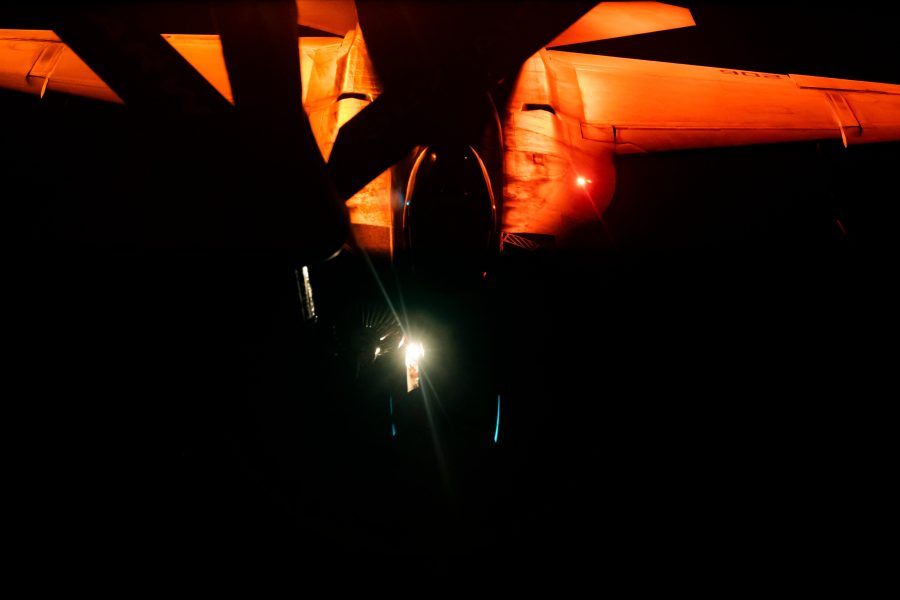The U.S. and its allies issued a firm warning to Houthi rebels in Yemen on Jan. 3, telling the group to stop attacks on shipping in the Red Sea or face “consequences.”
“The Houthis will bear the responsibility of the consequences should they continue to threaten lives, the global economy, and free flow of commerce in the region’s critical waterways,” read a joint statement from the U.S. and 12 other countries.
As of Jan. 2, the Iran-backed Houthis have carried out 24 attacks on commercial shipping in the Red Sea since Nov. 19, according to U.S. Central Command (CENTCOM). The 25-person crew of one ship has been held captive since November.
The U.S. wanted to “very clearly send a warning to the Houthis,” a senior administration official told reporters on Jan. 3.
The Houthis have attacked commercial ships with drones, small boat raids, and missiles, including the “first time anti-ship ballistic missiles have been used anywhere, let alone against commercial ships,” according to the senior administration official.
The U.S. has defended against Houthi attacks with fighter jets and Navy missile defense systems. British and French ships have also shot down drones launched by the Houthis.
The U.S. military has prepared strike options against Houthis should the Biden administration decide to use force against targets in Yemen, according to U.S. officials.
British Defense Secretary Grant Shapps has said the U.K. is “willing to take direct action” if attacks continue.
“I would not anticipate another warning” before the U.S. might take more forceful action, the U.S. senior administration official added.
The U.S. military has used force against the Houthis recently in self-defense. On Dec. 31, four small boats fired at U.S. Navy helicopters coming to the aid of a commercial vessel under attack. The helicopters fired back, killing members of the group and sinking three of the boats, according to the senior administration official and CENTCOM. The Houthis said 10 of its members were killed in that incident. The senior administration official said the Houthis might have been trying to hijack the vessel or damage it in a suicide bombing.
“Ongoing Houthi attacks in the Red Sea are illegal, unacceptable, and profoundly destabilizing,” the statement from the governments of the United States, Australia, Bahrain, Belgium, Canada, Denmark, Germany, Italy, Japan, Netherlands, Singapore, New Zealand, and the United Kingdom warned. “Let our message now be clear: we call for the immediate end of these illegal attacks and release of unlawfully detained vessels and crews.”
An emergency meeting of the United Nations Security Council was held Jan. 3 to discuss the Houthi threat. Chairman of the Joint Chiefs of Staff Air Force Gen. Charles Q. Brown Jr. spoke with his U.K. counterpart Adm. Sir Tony Radakin on Jan. 3 and “discussed the ongoing illegal Houthi attacks,” according a readout of the call from the Joint Staff.
“I think it demonstrates that the U.S., and its partners, are trying to operate in a responsible manner but that there is a limit to the behavior they are willing to accept,” retired Army Gen. Joseph L. Votel, who commanded CENTCOM from 2016-2019, told Air & Space Forces Magazine.
The Houthis have launchers for missiles and drones, coastal radars, and weapons storage facilities that could be targeted should the U.S. or other nations decide to use force.
The U.S. launched a limited salvo of cruise missiles at three coastal radar sites in Yemen in 2016 in response to attacks on ships by the Houthis during Votel’s time as CENTCOM commander.
“The message is measured, as I would expect, but clearly highlights that there are consequences associated with continued attacks and that these nations will hold malign actors accountable,” said Votel, a distinguished senior fellow at the Middle East Institute. He added that the statement “highlights the importance of leveraging all forms of national power, in this case diplomatic and informational, to put pressure on the Houthis and their Iranian backers.”
Iran and the so-called Axis of Resistance of groups aligned with it have launched attacks in the wake of the Israel-Hamas war. But some U.S. officials and regional security experts say the Houthis are more unpredictable and hardline than other Iranian-backed groups.
Vessels are at particular risk near Yemen because they must use Bab el-Mandeb strait to cross between the Red Sea and the Gulf of Aden, a critical chokepoint.
“Nearly 15 percent of global seaborne trade passes through the Red Sea, including 8 percent of global grain trade, 12 percent of seaborne-traded oil, and 8 percent of the world’s liquefied natural gas trade,” the joint statement noted.
The U.S. launched the multinational Operation Prosperity Guardian in December to help defend against Houthi attacks. American F/A-18 fighters from the USS Dwight D. Eisenhower aircraft carrier have shot down Houthi drones. At times, U.S. Air Force fighters have been active over the Red Sea, a senior U.S. defense official said. The U.S. has also been known to operate MQ-9 drones off the coast of Yemen, and the U.S. and U.K. have flown P-8 maritime surveillance planes in the region in the past.
“Especially when it comes to maritime domain awareness, airpower is always a significant contributor to that,” Pentagon Press Secretary Air Force Maj. Gen. Patrick S. Ryder said Dec. 21.
The Red Sea and Mediterranean Sea are connected by the Suez Canal, but commercial shippers have been forced to reroute their vessels around the Cape of Good Hope off the southern coast of Africa, causing significant delays and costs to the global economy.
“These attacks threaten innocent lives from all over the world and constitute a significant international problem that demands collective action,” the joint statement said. “We remain committed to the international rules-based order and are determined to hold malign actors accountable for unlawful seizures and attacks.”

